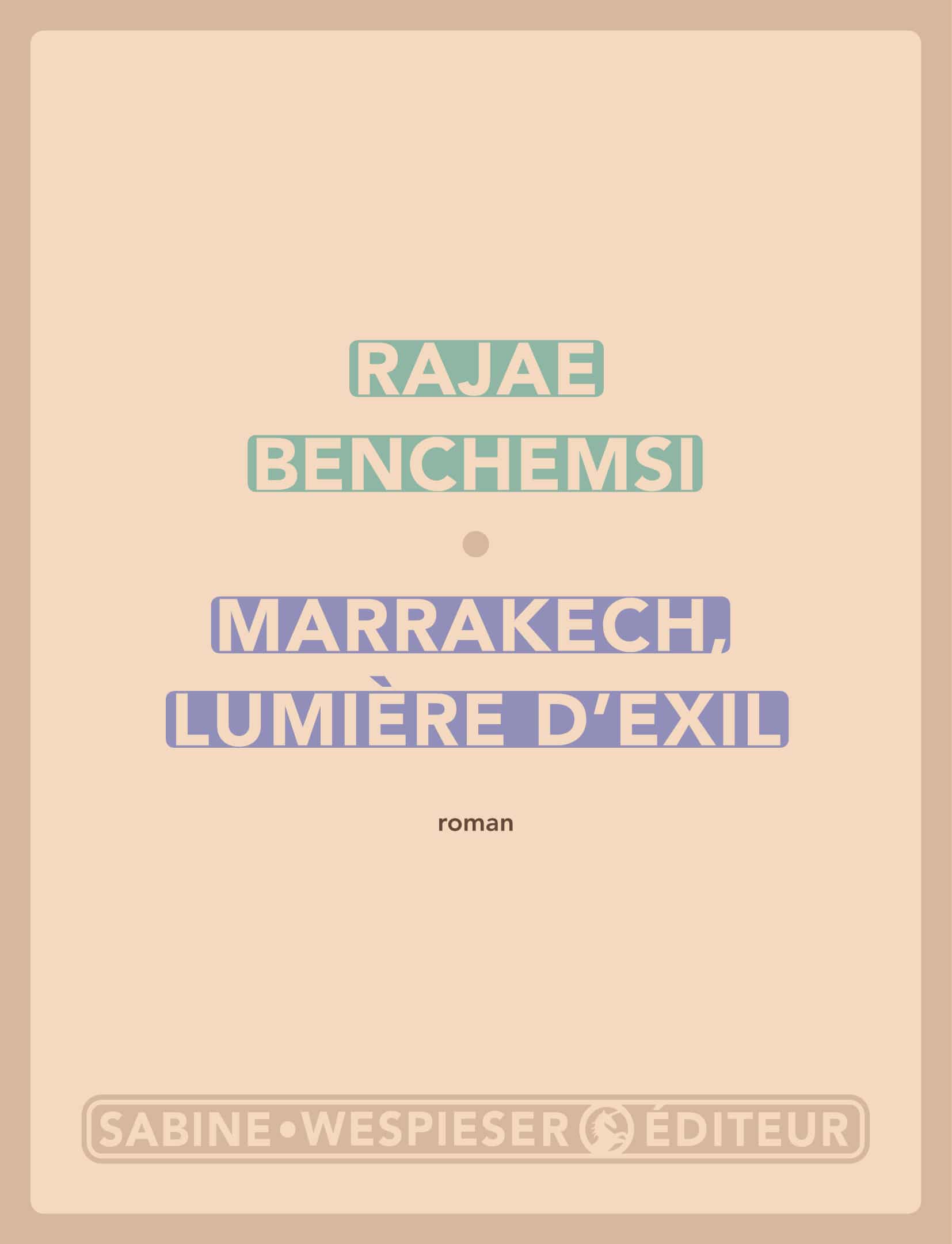 | Women in French |
"Un Livre, Un WIF" : SElections Actuelles |
WIF North America 2024:Marrakech, lumière d'exil, Rajae Benchemsi
Marrakech, lumière d’exil, nous met dans l’enceinte d’une des villes marocaines les plus prestigieuses de par son histoire, sa culture, ses traditions mais aussi l’hybridation qui se dégage de tous les coins de l’espace. Rajae Benchemsi entame son roman par une image des mains tendues au ciel au cœur de la place Jemaa-el-Fna qui signifie littéralement mosquée de l’anéantissement : « Des MAINS. Des MAINS BLANCHES. Des mains brunes. Des mains paumes ouvertes vers le ciel. Comme pour lui éviter de s’effondrer. Peut-être simplement pour l’accueillir. L’empêcher de se mêler au sol mouvant de l’antique place Jemaa-el-Fna » (Benchemsi 2003, 9). Cet espace échappe au vide du désert voisinant car il s’emplit de personnes, de rites et de culture qui passent de génération en génération. Jemaa-el-Fna manifeste aussi la collectivité et la communauté féminine symbolisées par ces mains tendues pour se faire tatouer et pour recevoir une culture, un savoir, une expérience. Cet acte semble être pour ces femmes « une concession à ce monde et leur donnait la délicieuse impression d’être initiées » (12). A travers cet acte, ces femmes visent à partager et à glorifier leur féminité au-delà des frontières. Jemaa-el-Fna est l’espace où le local se mêle à l’étranger, le ciel à la terre et le passé au présent. La profusion et la diversité de la place dominent les visiteurs. Personne ne se sent exclu à Jemaa-el-Fna car il y a de tout pour tous et l’atmosphère envoûtante épouse parfaitement les goûts de cette masse ondulante. A partir de cette place, les personnages de Benchemsi renouent avec leurs aïeules gardiennes de la tradition et de la langue que ce soit à travers le tatouage au henné, une pratique qui fait partie de la tradition féminine et ancestrale, ou en se mêlant à cette foule diverse, car la simple présence de la narratrice et du personnage de Bahia, la tatoueuse, dans cette place, seuil de différentes coutumes féminines (contes, danse, henné…) reflète la relation qui les lie à leurs aïeules ; et c’est là que commence la quête de soi chez Benchemsi comme chez la narratrice, une quête qui émane d’un grand amour d’échapper à un sentiment de perte face à son histoire et sa culture. Et Marrakech devient une mise en abyme de la tradition, voire de toute l’histoire marocaine vu « l’étrange et mystérieux raffinement de sa culture arabe, andalouse et berbère. Culture de la précision et du détail… culture sans mièvrerie ni emphase, de l’ascétisme des graphismes du Sud à la générosité sans faille inspirée du soufisme » (Benchemsi 2003, 13). En tant que mise en abyme, Marrakech préserve la singularité de la tradition et de l’histoire marocaine. Cette tradition avec ses différentes épaisseurs fait de cette ville « l’un des plus complexes et des plus agréables palimpsestes » (13), un palimpseste qui nous renseignent sur le développement et la diversité qui caractérise cet espace. Rajae Benchemsi, Biographie Née à Meknès, vit et travaille à Marrakech. Ancienne enseignante d’histoire des idées à l’ENS littéraire de Meknès, ancienne animatrice d’émissions sur la chaîne 2M, Rajae Benchemsi est poétesse, romancière, écrivain et critique d’art. Elle est très impliquée dans l’histoire de la tradition et notamment dans sa dimension soufie. Elle a à son actif de nombreuses publications de recueils de poésie, de romans, un essai sur l’art et deux monographies sur Farid Belkahia dont une aux éditions Skira Paris et une aux éditions Venise Cadre. Elle fonde en 2015 la Fondation Farid Belkahia dont elle est la Présidente et en 2016 le Musée Mathaf Farid Belkahia. Elle est membre de l’AICA-France (Association internationale des critiques d’art). Chronologie
*Written and nominated by Latifa Zoulagh, PhD Veuillez consulter l'excellent article de Dr. Zoulagh "Marrakech lumière d'exil : Benchemsi et l'écri-xhumation du corps féminin" ici sur notre blog WIF! |
